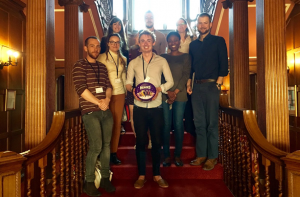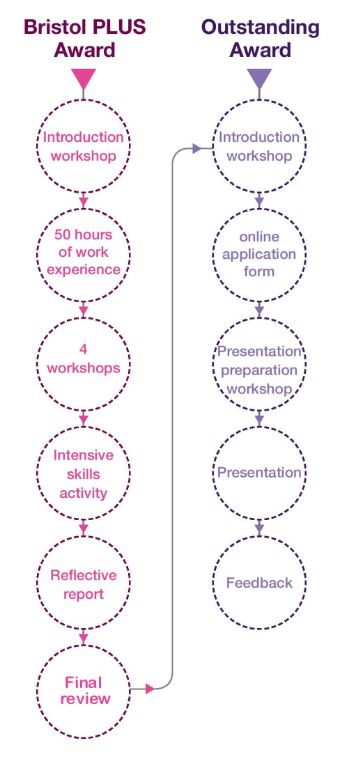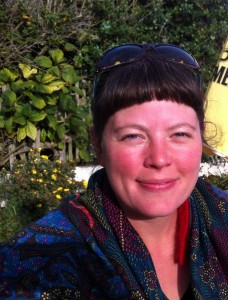This August Abi’odun Oyewole, a PhD candidate in the Graduate School of Education, went to the annual Life beyond the PhD conference at Cumberland Lodge. In this blog post she details her experiences and insights from her time spent at this interdisciplinary, knowledge-sharing and collaborative weekend.
It was an absolutely lovely experience to travel to Cumberland lodge, Windsor for the 2016 Life beyond the PhD conference. I am using this blog to share some of my memorable moments at the conference to encourage whoever may want to attend the conference next year.
1. A celebration of doctoral students
The welcome session struck a note when Owen, the programme director at Cumberland lodge and our host, described the conference as a celebration of doctoral students. According to Owen, doctoral students forget to celebrate themselves and we were about to be celebrated by people who appreciate what we do and how much we have sacrificed to that cause. Did I feel celebrated after three days? I think the amazing scenery, beautiful accommodation, engaging customer service, barbecues and delicious menus, did justice to Owen’s hopes. The day before the programme ended, I was wondering how much I would miss the dreamlike package.
2. Getting vital information on career development
The conference included useful sessions on experiences of applying for a job, and working inside and outside the academia. It was really helpful to hear personal experiences of failure and mistakes and what we can do to avoid some of these experiences. Also, the common factor to all shared experiences was the fact that the speakers achieved their aims after sometime, with effort and dedication. I absolutely enjoyed listening to the dramatic journey of a chief inspector of police who had once studied a PhD in Bio-chemistry. I also enjoyed listening Professor Graham Smith who spoke about expectations for and the realities of working inside academia. His advice is to take some time off work to refresh – all doctoral students must keep this in mind!! The workshop on successful applications by Dr Steve Joy and Katie Hewitt offered valuable insight into the job application process. It was enlightening to understand the standpoint of the recruiters and the qualities they are ‘really’ looking for in a prospective employee.
3. Learning how to communicate research to a different audience
On the second day of the conference we had a session with Dr Geraint Wyn Story, on public speaking or in better terms ‘how to avoid speaking Greek to a non-Greek audience’. I must admit that I wondered if his ‘dramatic’ techniques of getting the message across would help doctoral students. However, there was an amazing difference between the speech given by a few doctoral students at the beginning of the session and at the end of the session. The next day I found myself using some of those dramatic tips to present my research to a group with different disciplines. It was a truly beneficial session.
4. Working on an interdisciplinary project
Okay, I admit that this was my best moment at the conference and for a very obvious reason – my team won. Yayy!!! The background detail to this event was that we were split into groups and told to come up with an interdisciplinary research proposal. Imagine yourself working with researchers from a totally different field. I looked through the abstracts of my teammates the morning before the activity and got a headache. I just couldn’t see how our interests and skills would come together. However, my team mates quickly proved me wrong, it wasn’t about sole accomplishments but what the group could create and contribute to. In less than two hours, we came up with a project, the aims, rationale, research question, and schedule. We also had to present our proposal to other colleagues and the alleged sponsors, to compete for ‘funding’. I would say it was a tough competition but I’m really proud that my team got the chocolate box at the end of it all. We took a picture to celebrate. Haha!
5. Listening to experiences of the viva
On the final day of the conference, we listened to personal experiences of the viva voce and this was quite helpful. The speakers provided a balanced view of good and bad experiences of the examination. It was helpful to note mistakes to avoid at the viva, and understand the viewpoint of the examiners. The speakers also talked about experiences of selecting examiners. I liked the suggestion that we should not reject examiners that we disagree with, they might actually provide a more constructive critique of our research. Dr. Rachel Smillie also advised that we avoid assumptions about the examiners’ feedback.
Final words: Thanks to Cumberland lodge for organising this worthwhile experience and thanks to the Bristol Doctoral College for providing the opportunity to partake in it.











